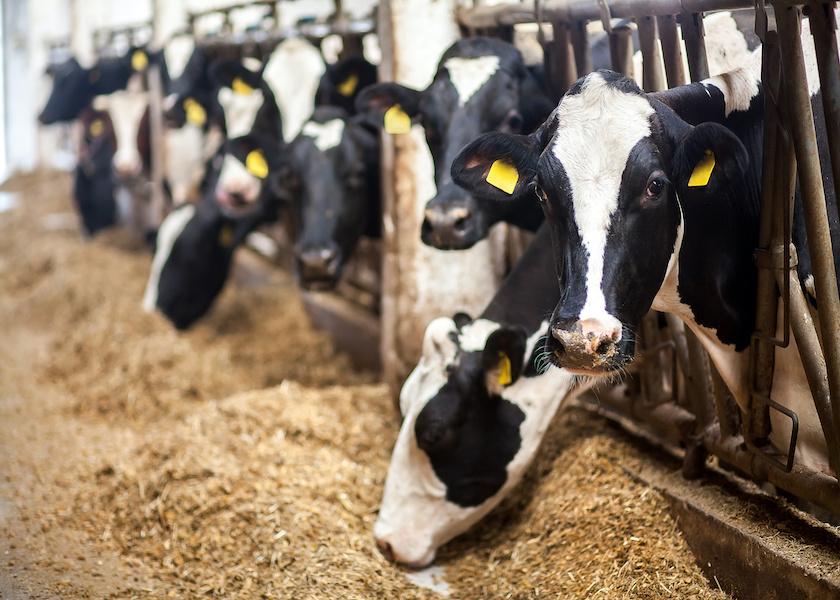New Research Adds Context to Diet Recommendations; Measures of Colostrum and Milk Yield and Calcium Dynamics

When it comes to improving the calcium status of transition cows, Phibro Animal Health Corporation offers a clear and unwavering recommendation: target a fully acidogenic, high calcium prepartum diet. Despite this clarity, Phibro continues to invest in research elucidating the mechanisms and the benefits of feeding a prepartum dietary cation-anion difference (DCAD) strategy. Sometimes, this research stems from questions its sales team receives in the field and passes along to Phibro’s research team.
“Because we work alongside producers and nutritionists to solve challenges, we get questions about both our products and our recommendations,” says Kristen Glosson, Ph.D., PAS, Senior Technical Service Manager, Phibro Animal Health. “When you hear a question more than twice, you start to realize that others may also have the same question — and those often become the basis of our research, which allows us to answer the questions through unbiased science and data.”
Effect of DCAD and Dietary Calcium on Colostrum, Milk and Serum Calcium Status
Phibro recently conducted several studies to test various DCAD strategies and their relationships with key minerals and vitamins.
“Calcium metabolism in pre- and postpartum dairy cows not only drives milk production; it’s also responsible for keeping cows healthy around the time of calving,” says James Chapman, Ph.D., Senior Research Leader, Collaborative Research, Phibro Animal Health. “We designed a study to compare Phibro’s Animate nutritional specialty product, fed under a fully acidogenic, high dietary calcium strategy, versus a diet that was just partially acidogenic or with a lower dietary calcium concentration, to identify the impact on calcium homeostasis of feeding 0.7% or 1.5% dietary calcium. And we learned that feeding 1.5% dietary calcium was effective in improving calcium status when fed in combination with our fully acidogenic DCAD recommendation.”
To this end, the research team designed a comparative study, which was conducted at Cornell University, consisting of four different DCAD treatments: fully acidogenic, high dietary calcium; fully acidogenic, moderate dietary calcium; partially acidogenic, high dietary calcium; and partially acidogenic, moderate dietary calcium.1,2
The research team set out to determine the effect of these four DCAD strategies on bovine mineral status during the transition period1 and production performance2 in 98 Holstein cows assigned to one of the four dietary treatments starting 26 days prior to expected calving.
Prepartum urine mineral and ammonium excretion were elevated in the cows fed a fully acidogenic diet, indicating successful compensated metabolic acidosis, while postpartum ionized calcium and serum total calcium were generally not affected by the treatments1.
“In comparing cows fed a fully acidogenic, high dietary calcium, strategy to cows fed a partially acidogenic, moderate dietary calcium, strategy we saw a significant increase in milk yield during the first nine weeks of lactation,” shares Dr. Glosson. “In addition to improved milk yield, the former group also produced more colostrum without dilution or difference in quality, which was very interesting. Calcium is an important mineral, and this study demonstrated why it is emphasized in our DCAD feeding recommendations.”
The Effects of Acidogenic Diets with Calcidiol during the Prepartum Period
The Phibro research team set out to expand its knowledge by conducting a study to evaluate serum calcidiol and blood calcium concentrations in prepartum Holsteins fed a partial or fully acidogenic diet with two levels of calcidiol. The source of calcidiol was Hy•D® 100, a nutritional specialty product from Phibro Animal Health, in partnership with DSM.
“We wanted to show our customers that the context of an acidogenic diet is really fundamental to a feeding program,” says Brooke Humphrey, Ph.D., Senior Director, Collaborative Research, Phibro Animal Health. “By feeding Hy•D with Animate, we achieved the desired calcium status response in the animal, especially important around the time of calving. The serum level of calcidiol matters, so it’s important to make sure you are feeding the right amount.”
The researchers hypothesized that serum calcidiol and blood calcium concentrations would differ among dry cows fed a partial or fully acidogenic diet supplemented with calcidiol. But after measuring urine pH levels and conducting daily observations of 26 late pregnant, multiparous Holsteins, they found that DCAD diet alone had no effect on serum calcidiol. However, it did affect urinary calcium excretion, demonstrating that the combination of a fully acidogenic diet with 1.5% dietary calcium and either level of Hy•D feeding can be effective in improving ionized calcium and serum calcidiol concentrations in prepartum dairy cows.
“This study should give customers confidence that this is a powerful combination for optimizing calcium response at the start of lactation,” says Dr. Humphrey.
Phibro researchers presented abstracts summarizing these two research studies and studies on other topics at the 2022 American Dairy Science Association meeting hosted last summer in Kansas City. To view the abstracts, visit https://www.adsa.org/Meetings/2022-Annual-Meeting/Abstracts. To learn more about Phibro Hy•D 100 and Animate, and for recommendations on formulating a prepartum diet for your dairy herd, contact your Phibro representative.







